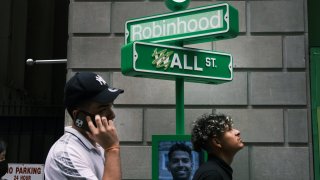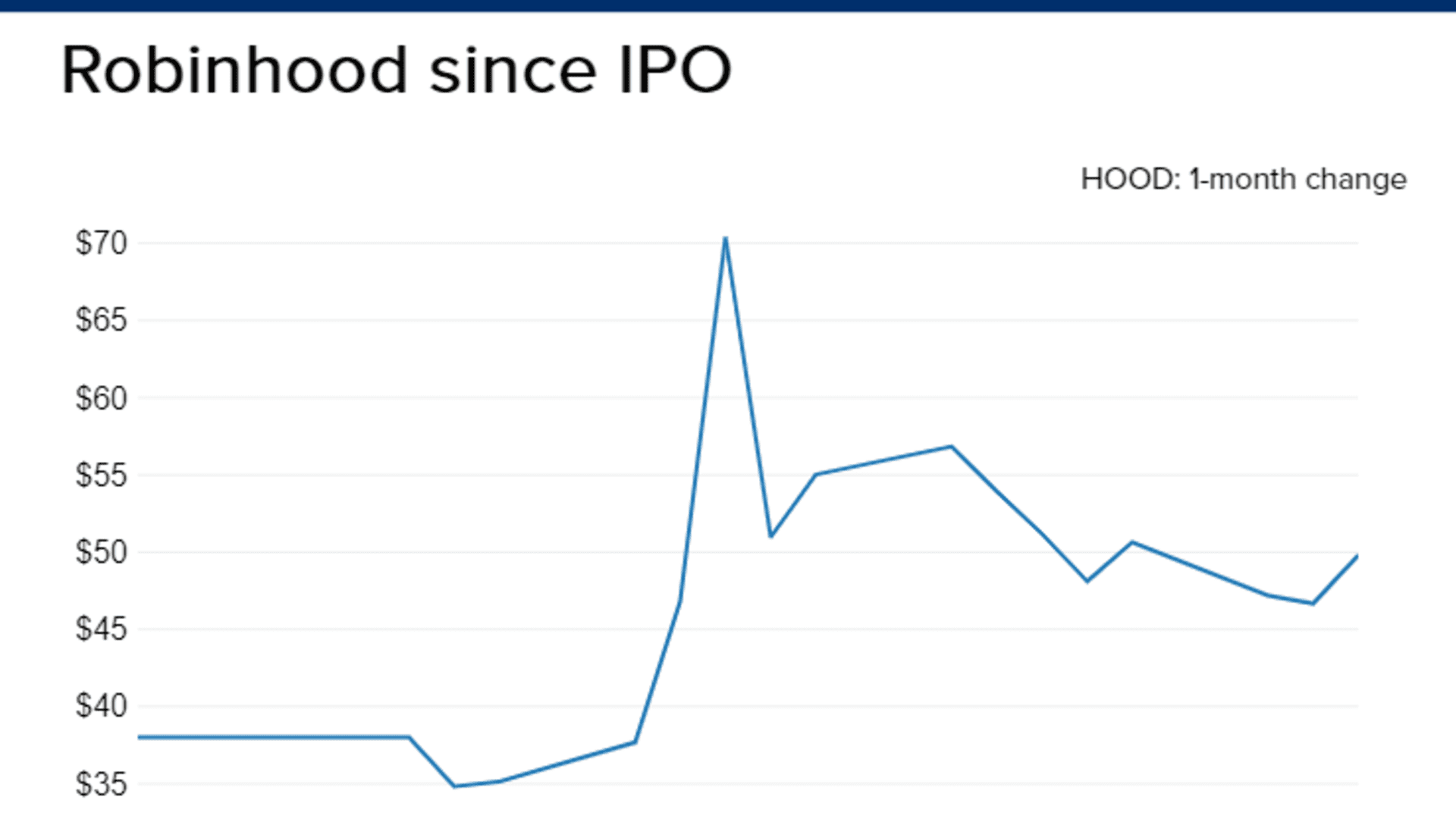
People wait in line for t-shirts at a pop-up kiosk for the online brokerage Robinhood along Wall Street after the company went public with an IPO earlier in the day on July 29, 2021 in New York City.
Newly public stock trading app Robinhood is not looking to do a secondary offering to take advantage of its retail investor-driven share price rise, according to the company's chief financial officer.
"It doesn't resonate with me to call Robinhood a meme stock," Robinhood CFO Jason Warnick told CNBC's Kate Rooney on "Squawk Box" on Thursday. "To your question about additional fundraising, we don't have any plans at this time to raise additional funds."
A week after Robinhood's lackluster debut at $38 per share, the stock experienced a surge in share price. The free trade pioneer become part of the meme-stock craze it once helped ignite, with retail traders driving an eye-popping rally. Shares of Robinhood touched $85 at one point, after falling back to its current level around $49.80.

After reporting on Wednesday a record second-quarter revenue, Warnick said the fundamentals for Robinhood are strong.
"We have 22-and-a-half million customers, our record quarter of $565 million. I think a really, you know, strong, kind of unit economics underlying our business," added Warnick.
Robinhood's revenue more than doubled in the second quarter to $565 million, helped by a massive surge in crypto trading. However, shares are down 9% on Thursday on investor concerns about a potential trading slowdown. Market participants could also be concerned whether volatile crypto can continue to provide such a tailwind for the brokerage.
Money Report
Revenue from crypto trading totaled $233 million, more than half of all the transaction-based revenue of $451 million for the second quarter. Cryptocurrency's share of revenue jumped to more than 51% from 17% in the first quarter.
Warnick also said Robinhood has enough capital to withstand another shock like in January with the GameStop short squeeze.

